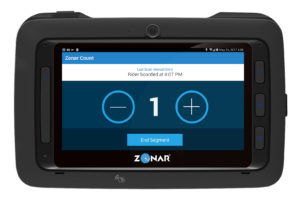Commercial and municipal fleet managers are currently facing a host of complex challenges within the trucking industry. Among these challenges are decreased demand for freight, increased operational costs, persistent difficulties in finding drivers and parking, and elevated fuel prices. Addressing these multifaceted obstacles requires a detailed understanding and a proactive approach. In this comprehensive guide, we will explore each of these challenges in-depth, provide data and statistics to support our analysis, and present actionable solutions to help you fortify your fleet’s resilience and efficiency.
Lower Demand for Freight and Higher Operational Costs
The American Transportation Research Institute (ATRI) highlights that the economy is currently the top concern within the trucking industry. Operational costs have skyrocketed, witnessing an unprecedented increase of 21.3% from the preceding year. These soaring costs are attributed to factors such as higher fuel expenses, amplified driver wages, and the escalating costs of procuring trucks and trailers.
Data from the Bureau of Labor Statistics (BLS) indicates that average trucking costs per mile have increased by over 20% between 2020 and 2022. As of 2022, the average trucking cost per mile stood at approximately $2.12, up from around $1.76 in 2020. This dramatic rise in costs further underscores the urgent need for fleet managers to leverage smart fleet management solutions to minimize operational expenses and safeguard profitability.
Fleet Health and Driver Performance
One of the key areas where fleet managers can make significant cost-saving gains is in maintaining fleet health and optimizing driver performance. According to research conducted by the Technology and Maintenance Council (TMC), unplanned maintenance costs account for a substantial portion of a fleet’s operational expenses. Data from the TMC further reveals that every dollar invested in predictive maintenance solutions can yield up to $4 in savings in terms of reduced breakdowns, lower repair costs, and enhanced vehicle availability.
Smart fleet management platforms can play a pivotal role in improving fleet health and driver performance by providing real-time insights into vehicle diagnostics, driver behavior, and fuel efficiency. Data-driven coaching and performance management can yield substantial fuel savings and mitigate violations and accidents, thereby lowering operating costs.
Fuel Efficiency and Truck Parking
The recent surge in fuel prices has put additional strain on fleets, making fuel efficiency a critical focus area. The Energy Information Administration (EIA) reports that average retail gasoline prices in the United States soared from $2.15 per gallon in January 2020 to $4.25 per gallon by December 2022, marking a staggering increase of nearly 100% over this period.
A critical aspect of fuel efficiency is tire maintenance, as under-inflated tires can lead to increased fuel consumption and higher wear and tear. Research conducted by the National Highway Traffic Safety Administration (NHTSA) suggests that tires underinflated by 25% or more can reduce fuel economy by 20% and shorten tire life by up to 25%. By implementing smart TPMS solutions, fleets can remotely monitor tire pressure and temperature in real-time, reducing fuel consumption, improving safety, and extending tire life.
Truck parking, another pressing concern, can significantly impact operational efficiency and driver safety. According to a study by the Federal Highway Administration (FHWA), inadequate truck parking is estimated to cost the trucking industry over $4.5 billion annually in lost time and productivity. The FHWA further indicates that approximately 75% of drivers regularly experience difficulties in finding safe, legal parking.
Fuel Prices and Driver Shortage
The ongoing driver shortage is one of the most pressing issues facing the trucking industry. Data from the American Trucking Associations (ATA) suggests that the industry currently faces a shortage of over 80,000 drivers, and this figure is expected to grow in the coming years. The ATA also estimates that the industry will need to hire an additional 1.1 million drivers over the next decade to keep up with demand.
The shortage of drivers has been exacerbated by factors such as the aging driver population, increased competition from other industries, and stringent entry-level driver training requirements. Smart fleet management solutions can help mitigate the impact of the driver shortage by streamlining operations, improving driver efficiency, and enhancing job satisfaction.
Driver Retention and Driver Distraction
Addressing the issue of driver retention is critical for fleet managers looking to maintain operational continuity and minimize recruitment costs. Research by the National Highway Traffic Safety Administration (NHTSA) has shown that turnover rates among commercial drivers can exceed 90% annually, leading to substantial costs for fleets in terms of recruitment, training, and lost productivity.
Smart fleet management solutions can play a vital role in improving driver retention by providing drivers with the tools and support they need to perform their jobs effectively and safely. In addition to streamlining operations, enhancing safety, and optimizing routes, fleet managers can also utilize data-driven coaching and recognition programs to motivate and retain drivers.
Another significant challenge facing fleet managers is driver distraction, which can have serious safety implications. Data from the Insurance Institute for Highway Safety (IIHS) indicates that approximately 25% of all motor vehicle crashes involve some form of driver distraction. The IIHS further estimates that distracted driving is responsible for around 4,000 fatalities and 400,000 injuries annually in the United States.
Lawsuit Abuse Reform
Another issue that has been a source of concern for fleet managers is the rise in lawsuits and nuclear verdicts. Data from the American Transportation Research Institute (ATRI) indicates that the number of verdicts exceeding $1 million has increased by over 300% since 2010, with many of these verdicts involving commercial motor carriers.
In recent years, there has been a rise in fraudulent lawsuits involving staged accidents, leading to a surge in nuclear verdicts. Data from the Federal Motor Carrier Safety Administration (FMCSA) shows that the number of staged accidents involving commercial vehicles has increased by nearly 60% over the past decade. The FMCSA also reports that fraudulent lawsuits involving commercial vehicles now account for over 50% of all claims filed against motor carriers.
Smart fleet management solutions like Dashcams can help fleets protect against fraudulent claims and nuclear verdicts by providing real-time data and video evidence. Advanced telematics systems and AI-powered dashcams can provide invaluable insights into the events leading up to an accident, helping fleets prove their innocence and avoid costly litigation.
Commercial and municipal fleet managers face a myriad of challenges in today’s trucking industry, from decreased demand for freight and higher operational costs to persistent difficulties in finding drivers and parking. However, by leveraging smart fleet management solutions and implementing proactive strategies, fleets can navigate these challenges more effectively and improve their overall resilience and efficiency.







